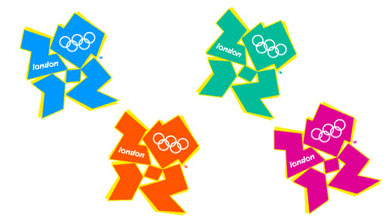Well the 2012 Olympic logo has come in for plenty of flak – but there are other factrors that could become a cause for concern.
Compare:
“London 2012 is inspired by you and it’s for all of you. I’m passionate about making 2012 the success it deserves to be. My pledge is that I will make these everyone’s Games. I urge you to take advantage of all of the opportunities.”
Sebastian Coe
with
“London 2012 is inspired by you and it’s for all of you. We are passionate about making 2012 the success it deserves to be. Our pledge is that we will make these everyone’s Games. We urge you to take advantage of all of the opportunities.”
Sebastian Coe (if I had drafted his speech!)
I think that the simple re-write helps – but it is not enough. The core problem is that he is promising something that cannot be delivered. He cannot make this everyone’s games. He does not have that power. And we know it.
I think that the ‘cult of personality’ could be more of a hindrance to the success of the London 2012 games than a dodgy logo.


